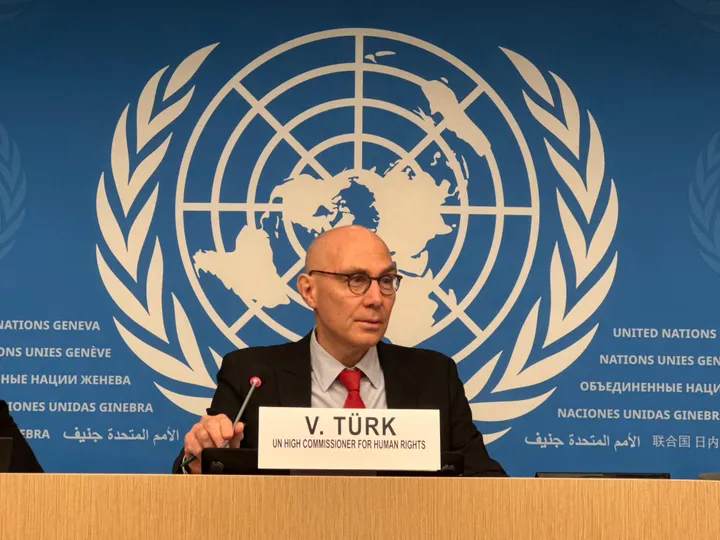Netflix has released a trove of Palestinian films this month, in a collection titled ‘Palestinian Stories’, with the works of award-winning filmmakers like Elia Suleiman and Basil Khalil featured on the streaming platform.
The themes explored across the 32 films and documentaries predominantly focus on the Palestinian experience under Israeli occupation, as well as those in exile, and the psychological impact of political conflict.
The collection was curated by Front Row Films Entertainment, a leading film distribution company in the Middle East and North Africa.
Here is a pick of five films and documentaries to watch from the collection.
The Present (2020)
Writer-director Farah Nabulsi and writer-editor Hind Shoufani produce a BAFTA-winning 23-minute short that depicts the harrowing reality of border control in the West Bank.
The film focuses on Yusef, a man struggling to make ends meet for his wife and young daughter, Yasmine. On the day of his wedding anniversary, Yusef agrees to take Yasemin on a shopping trip, but must endure the indignities and pain of going twice through a checkpoint manned by abusive soldiers before they can return home.
Despite a scene where it looks as if things are about to get ugly, the short ends with a browbeaten denouement, offering a microcosm of what ordinary Palestinians deal with on a routine basis under occupation.
Ghost Hunting (2007)
The documentary is directed by Raed Andoni and explores the haunting memories of being interrogated at al Moskobiya, Israel’s notorious interrogation facility, where Adoni himself was jailed at 18.
In the film, Adoni recruits actors (mainly ex-inmates from Moskobiya) to work together to build a reproduction of the facility in an empty warehouse in Ramallah and re-enact their interrogations as a way to heal their trauma.
It won the Berlinale’s first Silver Bear for Best Documentary and was screened at film festivals around the world.
Maradona’s Legs (2019)
This fictional short set during the period of the 1990 World Cup follows the story of two young boys on a quest for the last missing sticker – Maradona’s legs – that they need to complete their world cup sticker album and win a free Atari console.
The consequences of tribal fandom notwithstanding (best summed up in a scene when an Argentina-supporting driver kicks out our two Brazil-supporting protagonists upon their vocal appreciation for Romania scoring against the Albicelestes), the 14-minute short is a heart-warming story that offers a slice of Palestinian life in the 1990s as well as a moral story about materialism.
In Vitro (2019)
Larissa Sansour’s 28-minute black and white short is a sci-fi recoding of Palestinian dispossession set in a post-apocalyptic bunker in Bethlehem, where two survivors of the ecological disaster – scientists Dunia and Alia – discuss the past and the future.
Much of the dialogue evokes the memories of expulsion as the two diverge over the significance of cultural heritage in the aftermath of their collective trauma.
The film’s dualistic tone is symbolised in a two-channel split screen that toggles between the two women, creating a sense of suspension between past and future – a temporal limbo fundamental to the Palestinian experience following the 1948 Nakba (catastrophe).
Children of Shatila (1998)
A documentary by Mai Masri is a look at Beirut’s Palestinian Shatila refugee camp, which survived massacre, siege, and starvation, through the eyes of 11-year-old Farah and 12-year-old Issa.
Given a camera to film their daily experiences, the two children find creative ways to cope with the reality of living in a refugee camp. In a notable scene, the pair interview their grandparents about being expelled from their homes in Palestine.
The stories conveyed throughout the film serve to highlight the grave injustice that can turn the lives of otherwise normal people into a living hell, which is then inherited from one generation to another.























